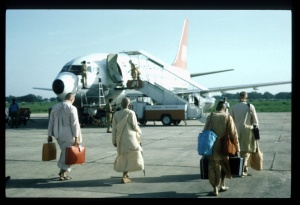SB 8.19.13: Difference between revisions
m (1 revision(s)) |
(Vanibot #0054 edit - transform synonyms into clickable links, which search similar occurrences) |
||
| (One intermediate revision by one other user not shown) | |||
| Line 1: | Line 1: | ||
{{info | {{info | ||
|speaker=Lord | |speaker=Lord Vāmanadeva the Supreme Personality of Godhead | ||
|listener=King Bali | |listener=King Bali | ||
}} | }} | ||
[[Category:Srimad-Bhagavatam - Canto 08 Chapter 19]] | |||
[[Category:Bhagavatam Verses Spoken by Lord Vamana - Vanisource|081913]] | |||
<div style="float:left">'''[[Srimad-Bhagavatam]] - [[SB 8|Eighth Canto]] - [[SB 8.19: Lord Vamanadeva Begs Charity from Bali Maharaja|Chapter 19: Lord Vāmanadeva Begs Charity from Bali Mahārāja]]'''</div> | |||
<div style="float:right">[[File:Go-previous.png|link=SB 8.19.12]] '''[[SB 8.19.12]] - [[SB 8.19.14]]''' [[File:Go-next.png|link=SB 8.19.14]]</div> | |||
{{RandomImage}} | |||
==== TEXT 13 ==== | ==== TEXT 13 ==== | ||
<div | <div class="verse"> | ||
vairānubandha etāvān | :vairānubandha etāvān | ||
āmṛtyor iha dehinām | :āmṛtyor iha dehinām | ||
ajñāna-prabhavo manyur | :ajñāna-prabhavo manyur | ||
ahaṁ-mānopabṛṁhitaḥ | :ahaṁ-mānopabṛṁhitaḥ | ||
</div> | </div> | ||
| Line 17: | Line 22: | ||
==== SYNONYMS ==== | ==== SYNONYMS ==== | ||
<div | <div class="synonyms"> | ||
vaira- | ''[//vanipedia.org/wiki/Special:VaniSearch?s=vaira&tab=syno_o&ds=1 vaira]-[//vanipedia.org/wiki/Special:VaniSearch?s=anubandhaḥ&tab=syno_o&ds=1 anubandhaḥ]'' — enmity; ''[//vanipedia.org/wiki/Special:VaniSearch?s=etāvān&tab=syno_o&ds=1 etāvān]'' — so great; ''[//vanipedia.org/wiki/Special:VaniSearch?s=āmṛtyoḥ&tab=syno_o&ds=1 āmṛtyoḥ]'' — up to the point of death; ''[//vanipedia.org/wiki/Special:VaniSearch?s=iha&tab=syno_o&ds=1 iha]'' — in this; ''[//vanipedia.org/wiki/Special:VaniSearch?s=dehinām&tab=syno_o&ds=1 dehinām]'' — of persons too involved in the bodily concept of life; ''[//vanipedia.org/wiki/Special:VaniSearch?s=ajñāna&tab=syno_o&ds=1 ajñāna]-[//vanipedia.org/wiki/Special:VaniSearch?s=prabhavaḥ&tab=syno_o&ds=1 prabhavaḥ]'' — because of the great influence of ignorance; ''[//vanipedia.org/wiki/Special:VaniSearch?s=manyuḥ&tab=syno_o&ds=1 manyuḥ]'' — anger; ''[//vanipedia.org/wiki/Special:VaniSearch?s=aham&tab=syno_o&ds=1 aham]-[//vanipedia.org/wiki/Special:VaniSearch?s=māna&tab=syno_o&ds=1 māna]'' — by egotism; ''[//vanipedia.org/wiki/Special:VaniSearch?s=upabṛṁhitaḥ&tab=syno_o&ds=1 upabṛṁhitaḥ]'' — expanded. | ||
</div> | </div> | ||
| Line 24: | Line 29: | ||
==== TRANSLATION ==== | ==== TRANSLATION ==== | ||
<div | <div class="translation"> | ||
Hiraṇyakaśipu's anger against Lord Viṣṇu persisted until his death. Other people in the bodily concept of life maintain anger only because of false ego and the great influence of ignorance. | Hiraṇyakaśipu's anger against Lord Viṣṇu persisted until his death. Other people in the bodily concept of life maintain anger only because of false ego and the great influence of ignorance. | ||
</div> | </div> | ||
| Line 31: | Line 36: | ||
==== PURPORT ==== | ==== PURPORT ==== | ||
<div | <div class="purport"> | ||
Generally speaking, even though the conditioned soul is angry, his anger is not perpetual but temporary. It is due to the influence of ignorance. Hiraṇyakaśipu, however, maintained his enmity and his anger against Lord Viṣṇu until the point of death. He never forgot his vengeful attitude toward Viṣṇu for having killed his brother, Hiraṇyākṣa. Others in the bodily concept of life are angry at their enemies but not at Lord Viṣṇu. Hiraṇyakaśipu, however, was everlastingly angry. He was angry not only because of false prestige but also because of continuous enmity toward Viṣṇu. | Generally speaking, even though the conditioned soul is angry, his anger is not perpetual but temporary. It is due to the influence of ignorance. Hiraṇyakaśipu, however, maintained his enmity and his anger against Lord Viṣṇu until the point of death. He never forgot his vengeful attitude toward Viṣṇu for having killed his brother, Hiraṇyākṣa. Others in the bodily concept of life are angry at their enemies but not at Lord Viṣṇu. Hiraṇyakaśipu, however, was everlastingly angry. He was angry not only because of false prestige but also because of continuous enmity toward Viṣṇu. | ||
</div> | </div> | ||
__NOTOC__ | |||
<div style="float:right; clear:both;">[[File:Go-previous.png|link=SB 8.19.12]] '''[[SB 8.19.12]] - [[SB 8.19.14]]''' [[File:Go-next.png|link=SB 8.19.14]]</div> | |||
__NOTOC__ | |||
__NOEDITSECTION__ | |||
Latest revision as of 23:22, 18 February 2024

A.C. Bhaktivedanta Swami Prabhupada
TEXT 13
- vairānubandha etāvān
- āmṛtyor iha dehinām
- ajñāna-prabhavo manyur
- ahaṁ-mānopabṛṁhitaḥ
SYNONYMS
vaira-anubandhaḥ — enmity; etāvān — so great; āmṛtyoḥ — up to the point of death; iha — in this; dehinām — of persons too involved in the bodily concept of life; ajñāna-prabhavaḥ — because of the great influence of ignorance; manyuḥ — anger; aham-māna — by egotism; upabṛṁhitaḥ — expanded.
TRANSLATION
Hiraṇyakaśipu's anger against Lord Viṣṇu persisted until his death. Other people in the bodily concept of life maintain anger only because of false ego and the great influence of ignorance.
PURPORT
Generally speaking, even though the conditioned soul is angry, his anger is not perpetual but temporary. It is due to the influence of ignorance. Hiraṇyakaśipu, however, maintained his enmity and his anger against Lord Viṣṇu until the point of death. He never forgot his vengeful attitude toward Viṣṇu for having killed his brother, Hiraṇyākṣa. Others in the bodily concept of life are angry at their enemies but not at Lord Viṣṇu. Hiraṇyakaśipu, however, was everlastingly angry. He was angry not only because of false prestige but also because of continuous enmity toward Viṣṇu.